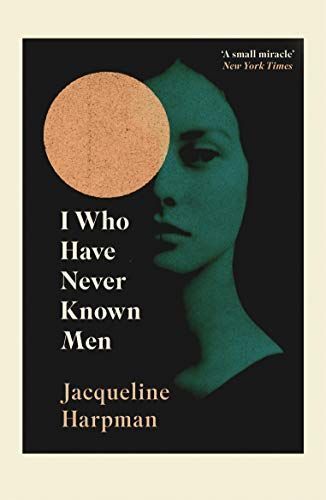
I Who Have Never Known Men
A haunting, heartbreaking post-apocalyptic tale of female friendship and intimacy. 'A small miracle' The New York Times 'For a very long time, the days went by, each just like the day before, then I began to think, and everything changed' Deep underground, thirty-nine women live imprisoned in a cage. Watched over by guards, the women have no memory of how they got there, no notion of time, and only vague recollection of their lives before. As the burn of electric light merges day into night and numberless years pass, a young girl - the fortieth prisoner - sits alone and outcast in the corner. Soon she will show herself to be the key to the others' escape and survival in the strange world that awaits them above ground. WITH A NEW INTRODUCTION BY SOPHIE MACKINTOSH, MAN BOOKER PRIZE-LONGLISTED AUTHOR OF THE WATER CURE
Reviews
Germaine Lee@germainelcy
Brynn Sklar@brynnhiilde
Taira Robles@tairotcards
Acadia@drakka
Amalie@amalien
z@zsg-zsg
Raadeem Pierre@raadeem
⏾@versailles
Liz Hunsaker@elizabethanne
B.A. Bacigal@creeke
Max Riley@maxreads
ni@poetics
soochie@soochie
Genevieve @laviedegin
c0up@c0up
Soph@soph26
Marsh@marshkrueger
cha@chakiiko
Thariq Fauzan@towwwwwiq
Xiang@xiaoming
nattie@nattierose
Rae@raeraerae
walna@yoovol
Finn James@finnmemorial
Highlights
han ˚✧₊⁎❝᷀ົཽ@haniishu
han ˚✧₊⁎❝᷀ົཽ@haniishu
han ˚✧₊⁎❝᷀ົཽ@haniishu
han ˚✧₊⁎❝᷀ົཽ@haniishu
han ˚✧₊⁎❝᷀ົཽ@haniishu
han ˚✧₊⁎❝᷀ົཽ@haniishu
han ˚✧₊⁎❝᷀ົཽ@haniishu
han ˚✧₊⁎❝᷀ົཽ@haniishu
han ˚✧₊⁎❝᷀ົཽ@haniishu
han ˚✧₊⁎❝᷀ົཽ@haniishu
han ˚✧₊⁎❝᷀ົཽ@haniishu
han ˚✧₊⁎❝᷀ົཽ@haniishu
han ˚✧₊⁎❝᷀ົཽ@haniishu
Madelaine Jarcew@lalalaine
Page 169
Madelaine Jarcew@lalalaine
Page 154
⏾@versailles
Madelaine Jarcew@lalalaine
Page 101
Madelaine Jarcew@lalalaine
Page 76
plantdad@smallplantdad
Krystal@demonhour
aywen@aywen
aywen@aywen
aywen@aywen
nhu ⋆𐙚₊˚⊹@nhuelle